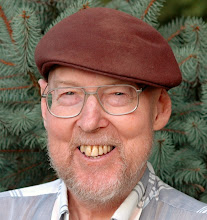- let's figure out how to turn this into a battle to do more, not less. Example one: require all new cars to have, right next to the speedometer, a mileage meter. And put the same number on an LCD display on the rear bumper. Once there's an arms race to see who can have the highest number, we're on the right track.
Monday, May 21, 2007
Doing more for a cool planet
Sunday, May 20, 2007
Riding the waves: Using the rhythms of life to be highly productive.
"I'm bogged down," she said in a weary voice.
"Hannah, I have a good idea. Do you want to hear it?"
"What?" she said in a flat tone that let me know that the last thing she wanted to hear was one more good idea."
"Take a 15 minute walk and when you get back you'll think much more creatively,"applying the rhythm path to her situation."
"I'll take a break in a few minutes," she said, still sounding weary.
About 8:00 in the evening I called and she sounded re-energized and was making good progress.
Later, after she was home, I asked her if she had gone on a walk. She had not only gone for a power walk but on the walk she had used her Blue Tooth to talk with her 11-month old daughter and her mother who was taking care of her baby. The exercise and connecting with two people she loves was just eneough recovery time to give her the energy to work another five productive hours.
Monday, May 07, 2007
Starting over
I've helped other organizations raise millions but today when I e-mail the board to tell them we need to raise $15,000 to create a website that can host a complete set of plans for annual and capital campaigns for other nonprofits, and serve as part of a platform for a book on nonprofit leadership, I feel like a beginner.
Reading Michele Martin's How to be a beginner was exactly what I needed as I wrap up my day this evening. Here are two good quotes:
- Part of learning and growing, I think, is getting comfortable with being a beginner.
- Be willing to fail publicly. This is the hardest one for me. I prefer to fail quietly, behind the scenes, not in front of an audience. But you don't get feedback when you always fail alone, so sometimes you have to be willing to take a risk where people can see you.
Check out Michele's "The Bamboo Project Blog."
The kindness economy
| The kindness economy |
| As I twisted the gas cap on my Dodge Caravan a well-dressed stranger, a seventy-something lady, came around the gas pump and said, “Could you show me how to do this? My husband died and I don’t know how to fill on gas.” “Someone’s going to get a free cart,” I said. “My quarter is stuck in this one.” Wisdom for the week: At their best, nonprofits run on an economy of kindness among strangers. 7 Path of Thriving Organizations, #103, March 1, 2007 |

